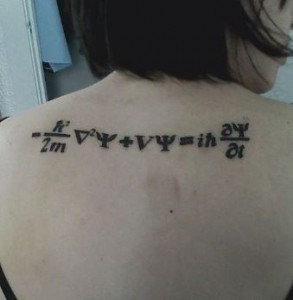 16. God – On Pantheism, Theism, and Atheism
16. God – On Pantheism, Theism, and Atheism
Pantheism: God = Nature.
Scientific Pantheism: God = Nature, as known through modern science.
Richard Dawkins, a world famous “new atheist”, famously said pantheism is just sexed up atheism. This flippant assertion is indicative of a polemically motivated atheist’s primary agenda: that the mission (regarding the subject of God) is to argue that the theist’s supernatural sentient supreme being(s) doesn’t exist, or cannot be proven to exist. The debate, between theists and atheists, is typically seen as a black versus white dual. No grey area. The atheist sees theism as delusional, and the source of dangerous irrational supernatural dogmatism, and thus bad or evil. And the theist sees atheists as dangerously and sinfully turning their back on the creator and thus a meaningful life, and thus atheism is bad or evil. So, a middle ground, or compromise, doesn’t seem to be an honest, or moral, option. In this dual Sam Harris and other significant contemporary public figures have famously sided with atheism.
In the context of this debate, it may be instructive to quote Einstein, ‘”The fanatical atheists…are like slaves who are still feeling the weight of their chains which they have thrown off after hard struggle. They are creatures who—in their grudge against the traditional ‘Opium of the people’ – cannot hear the music of the spheres.” Although he did not believe in a personal God, he indicated that he would never seek to combat such belief because “such a belief seems to me preferable to the lack of any transcendental outlook.”‘
Since Harris (another new atheist) appears to adhere to the dualistic approach on the question of God’s existence, he would likely subscribe to the argument that polemical atheists often make regarding pantheism: that for what it is that they are talking about, pantheists should choose another word than ‘God’. He would likely fail to see the point of calling nature or the universe “God”, and he’d claim that it’s merely a misleading semantics game. That, yes, pantheism is “just sexed up atheism”.
So, hypothetically, would it ever be legitimate for a pantheist to say they believe in God, without first or immediately clarifying that they are a pantheist? Well, there is certainly no point in being dishonest. So, the pantheist should clarify that they are pantheists. And yet, it is also honest to explain to atheists that there are huge and profound overlaps between the pantheistic and theistic definition of God:
A. Pantheists and theists see God as that which is the ultimate good (and the ultimate beauty, or Einstein’s ‘music of the spheres’), and that loving, revering, and acting in accord with that good/beauty is the ultimate Meaning of life.
B. Pantheists and theists see God as a source of transcendent unity. As “God” is that which is good/beautiful (or the root of goodness and beauty in this reality), and unity with the whole of reality is pragmatically useful/necessary for successful existence. The theist and pantheist see their prescription, for transcendent universe encompassing unity, as more useful than the more constrained and parochial utilitarian prescription (common among atheists) for ethical unity around the well being of conscious creatures.
C. Pantheists and theists see that not only is God profoundly understandable, but also awesome and ultimately mysterious. As Einstein said, “The most incomprehensible thing about the world is that it is comprehensible.”
D. Pantheists and theists see that God is where goodness and truth merge. Although a pantheist is likely to acknowledge that God is only good, and the Good, in general. Whereas a theist normally says God is always the Good. Which leads us to . . .
E. Pantheists and theists are OK with saying that, though we should and do mostly love God, it is also perfectly OK to fear god. From the pantheist perspective at least, although there is much to love and revere about God/nature, there is much to wisely respect and even fear; such as intestinal worms, or when tsunamis, tornadoes, asteroids, etc. are approaching. It isn’t a dualistic question of love versus fear. For the psychologically healthy scientific pantheist at least, it is mostly love (in general) with some healthy fear occasionally; when it’s rational, pragmatic, and useful.
F. Regarding God’s supernatural sentience or agency, even here there is some profound room for agreement. Although the pantheist is atheistic-ally agnostic about the supernatural, they are still more likely than the atheist to sympathize with theists for being under the influence of the profound utility of seeing an anthropocentric sentient quality to God.  Even though that anthropocentric sentience for the scientific pantheist is only metaphorical. This is what Spinoza (philosophy’s most famous pantheist) meant when he non-disparagingly and empathetically referred to religion as a useful fiction. What is really meant by this? That question can be answered by asking, why has homo sapiens anthropocentrized nature from animistic paleolithic times, throughout the entire history of all of the gods of all the world’s religions, to the present?
Even though that anthropocentric sentience for the scientific pantheist is only metaphorical. This is what Spinoza (philosophy’s most famous pantheist) meant when he non-disparagingly and empathetically referred to religion as a useful fiction. What is really meant by this? That question can be answered by asking, why has homo sapiens anthropocentrized nature from animistic paleolithic times, throughout the entire history of all of the gods of all the world’s religions, to the present?
Sam Harris implicitly touches on, but fails to answer, this question when he says that, “all the concerns that we naturally have in this life are in reference to the well-being of conscious creatures”. The pantheist, theist, and animist may say yes, certainly, part of the reason people have worshiped, loved and respected rain gods, volcano gods, and oak tree gods, certainly is because; by humans propitiating them, the gods will grant favors back upon us conscious creatures.
But, atheists and secular utilitarians seem to have forgotten something fundamental and profoundly important about the nature of true love and respect: Regarding god(s), pantheists, theists, and animists implicitly understand something any successful couple knows: if love and respect are based simply on pure self interest, they don’t work very well. They aren’t genuine. Even if most altruistic acts are ultimately driven by the implicit assumption of reciprocity, altruistic acts cannot be overly calculating. Sometimes it is even wise for the ‘self’ to jump on a grenade for the common good. Indeed, the un-calculate-able/unpredictable aspects of reality are why altruism is necessary. Thus the self interested calculating lover likely won’t pay sufficient care and attention to the beloved for the relationship to work. However, the problem with necessarily altruistic love (when applied to unconscious things) is that the conscious human ego is powerful enough, and thus self referential enough, that truly loving something as unconscious as a rain cloud (or Newton’s profoundly reasonable yet ultimately mysterious universal law of gravitation) often doesn’t sufficiently work. And yet, in order to co-exist with volcanoes, trees, climate, the laws of physics, etc., we need to genuinely and deeply love and respect them.
So, how do we find a way to sufficiently love something as unlike ourselves as a volcano or as a law of physics? Well, a wise pantheist is at least sympathetic that throughout human history animists, polytheists, and theists have understandably (if factually incorrectly) anthropocentrized unconscious nature with sentience, and thus agency. And, this need for reverence (profound love and respect) of nature that transcends the self referential ethos of the well being of conscious creatures is where atheistic utilitarianism is silent and weak regarding what is a truly pragmatic necessity in this life: caring, profoundly, about the much larger non-conscious world.
This is a core reason why, for example, a well meaning secular utilitarian philosophers such as Peter Singer, and/or the world’s greatest philanthropist Bill Gates, subtly but crucially have missed the mark by parochially spending their central altruistic thrust on preventing direct suffering (certainly a worthy goal), while addressing truly existential larger environmental threats to the survival of billions of humans, human civilization, and millions of species (threats like general AI, nuclear war, bio terrorism, and climate change) has remained a secondary priority. Atheists and secular utilitarians struggle to find the path to pragmatically/sufficiently love the non-sentient world. Pantheists are much more likely to care about how our actions influence the distant future (for example), because we care about acting/being profoundly in accord with reality/nature, more than whether we as individuals will be here to directly experience the results that the trajectory of our actions cause, or not.
So, Dawkins is wrong. Pantheism is far far more than “sexed up atheism”.

